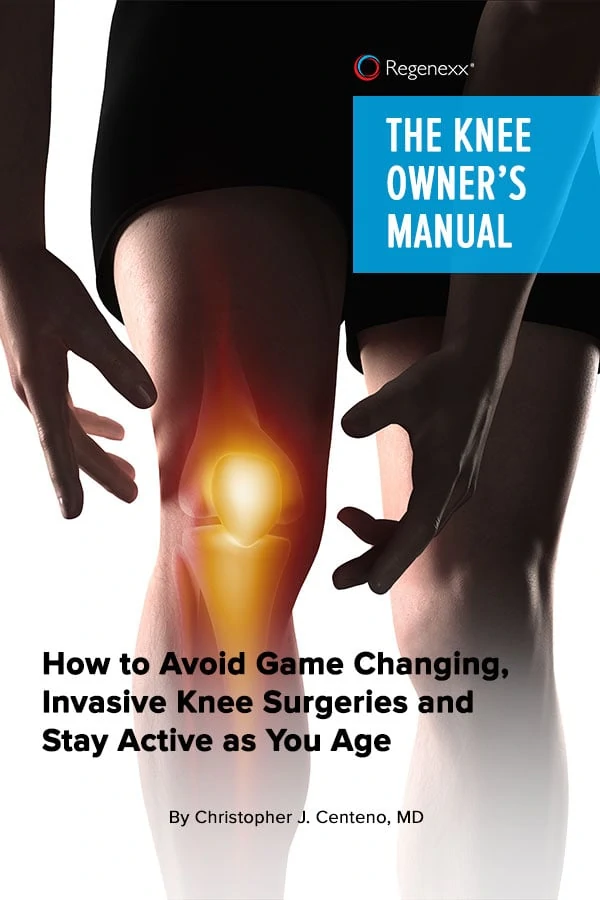Epidural use for knee replacement surgery is a common practice.
Epidural use for knee replacement surgery can avoid the use and risks associated with a general anesthetic.
Unfortunately epidural use for knee replacement surgery still exposes the patient to the risks of a regional anesthetic including but not limited to infection, spinal headache, nerve damage and failure which may require the administration of a general anesthetic.
Epidural use for knee replacement surgery also exposes the patient to the risks inherent in knee surgery which include failure, infection, nerve damage, pulmonary blood clots and death.
Regenexx offers patients an alternative to the risks of both surgery and anesthesia, Regenexx is option in lieu of knee replacement surgery. Regenexx allows the patient to grow knee cartilage through implantation of their own stem cells. Centeno et al demonstrated on MRI the regeneration of knee cartilage in patients who had undergone the simple needle in, needle out Regenexx procedure. No general anesthetic or epidural is needed. The only anesthetic used is lidocaine to numb the skin. No surgery or hospitalization is required. After a given patient’s stem cells are expanded in our cell laboratory they are injected directly into the area of damaged cartilage under intermittent x-ray. No extensive rehabilitation is required.
The risks of epidural use for knee replacement surgery can now be eliminated through the use of expanded the PKA procedure.
